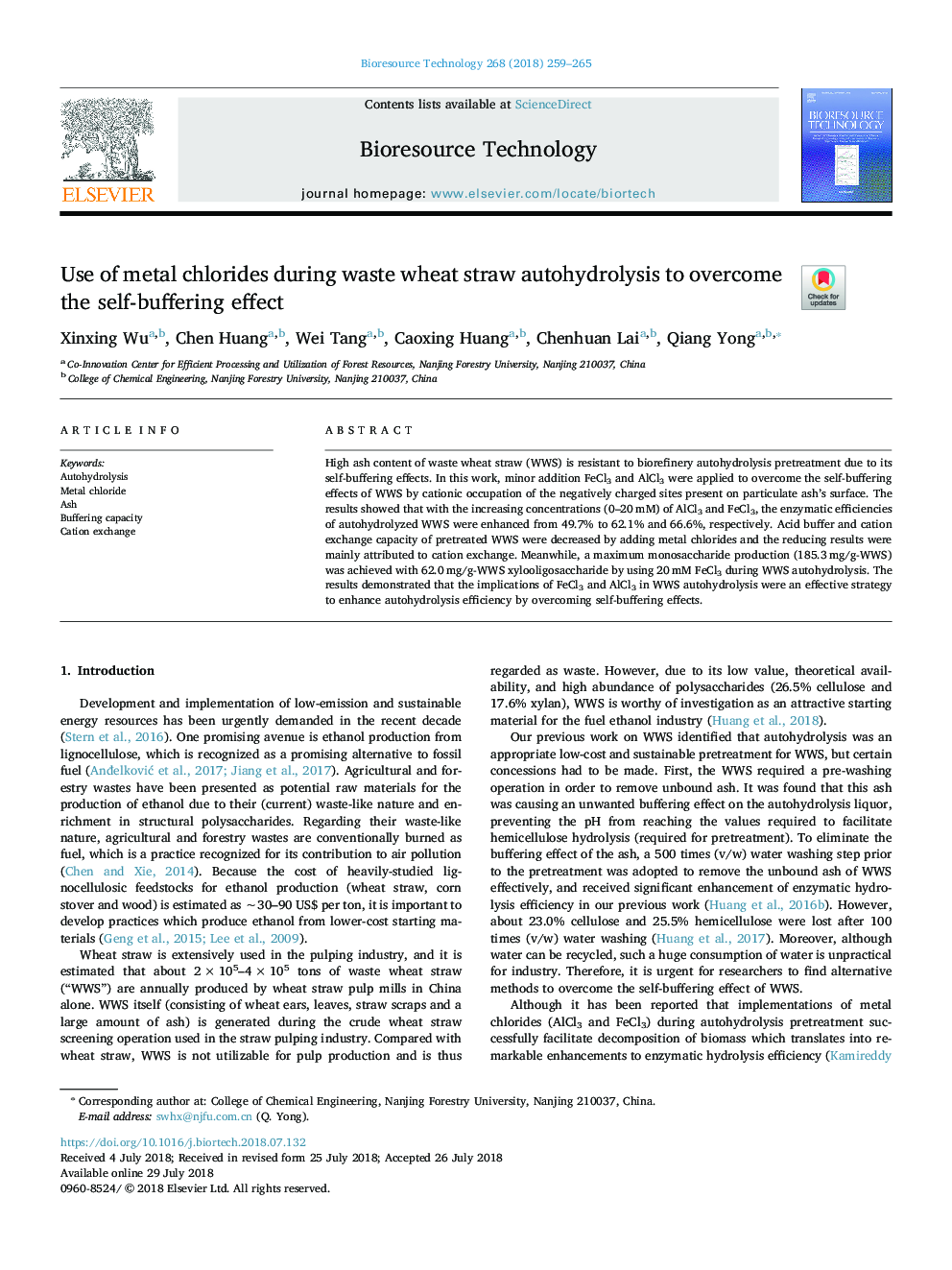| Article ID | Journal | Published Year | Pages | File Type |
|---|---|---|---|---|
| 7065847 | Bioresource Technology | 2018 | 7 Pages |
Abstract
High ash content of waste wheat straw (WWS) is resistant to biorefinery autohydrolysis pretreatment due to its self-buffering effects. In this work, minor addition FeCl3 and AlCl3 were applied to overcome the self-buffering effects of WWS by cationic occupation of the negatively charged sites present on particulate ash's surface. The results showed that with the increasing concentrations (0-20â¯mM) of AlCl3 and FeCl3, the enzymatic efficiencies of autohydrolyzed WWS were enhanced from 49.7% to 62.1% and 66.6%, respectively. Acid buffer and cation exchange capacity of pretreated WWS were decreased by adding metal chlorides and the reducing results were mainly attributed to cation exchange. Meanwhile, a maximum monosaccharide production (185.3â¯mg/g-WWS) was achieved with 62.0â¯mg/g-WWS xylooligosaccharide by using 20â¯mM FeCl3 during WWS autohydrolysis. The results demonstrated that the implications of FeCl3 and AlCl3 in WWS autohydrolysis were an effective strategy to enhance autohydrolysis efficiency by overcoming self-buffering effects.
Related Topics
Physical Sciences and Engineering
Chemical Engineering
Process Chemistry and Technology
Authors
Xinxing Wu, Chen Huang, Wei Tang, Caoxing Huang, Chenhuan Lai, Qiang Yong,
